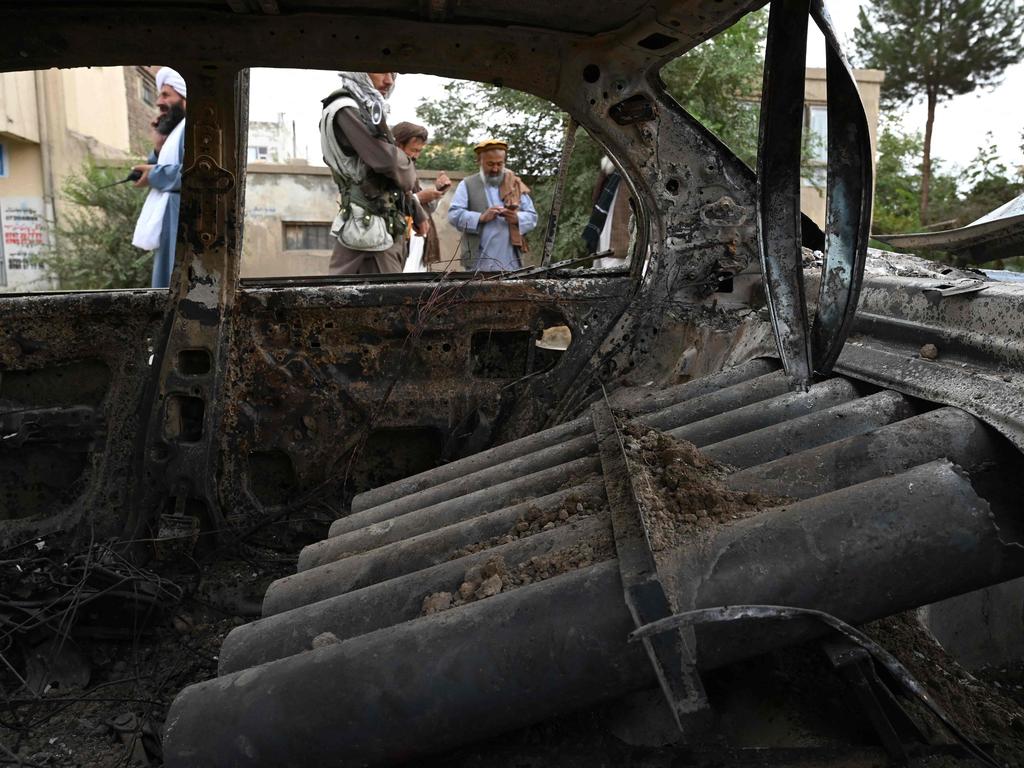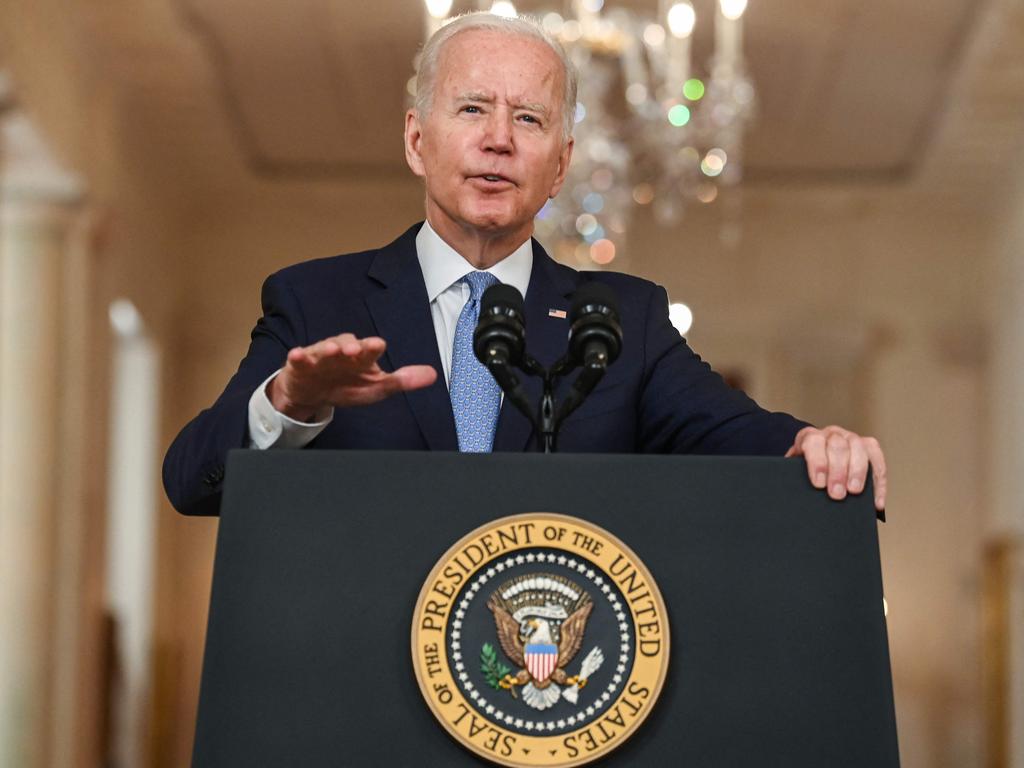Honoured to help the 21st Kabul Lancers evade the Taliban
Extracting at-risk locals from Afghanistan was a logistical nightmare — among the heroes of those weeks were Australians and their Afghan mates.
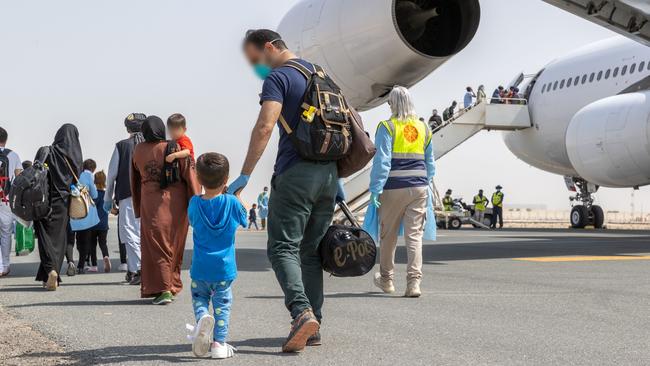
I received the text message at around midnight on Sunday, August 22: “Mina, do you want to help evacuate people out of Afghanistan?”
Still reeling from what had taken place in my former country, my place of birth, I replied: “Yes!”
The question was from a member of the 21st Kabul Lancers, a network of Australians and Afghans with military and government experience and connections who secretly had been supporting the evacuation of vulnerable women and children from the strife-torn country since the middle of last month.
The ensuing 86 hours were marked by rescues, extrications, regular loss of communications, geo-pindrop map locations, beatings and whippings by the Taliban, evacuations, and begging and praying to get evacuees through those gates. It all culminated in suicide attacks at the gate our evacuees departed through just hours earlier.
Those suicide attacks in Afghanistan were another nail in the coffin of failure. The Taliban was quick to condemn the attacks, maintaining that it was trying to restore security in Afghanistan. This is ironic because members of the Taliban were conducting these terrorist attacks just weeks earlier before the group came to power through brute force. During its first day in Kabul the Taliban released 5000 prisoners including Islamic State operatives, suicide bombers, rapists and murderers from jail.
And only last week we witnessed the latest showcase of Taliban military might: a parade featuring suicide vests and car bombs.
The 21st Kabul Lancers are a small unit of five Australians and nine Afghans, formed in the last days before the Taliban takeover.
In the past weeks they have found and escorted 100 evacuees, including supporting the extrication of a Royal Military College staff cadet’s family, thanks to co-ordination between the Australian departments of Foreign Affairs and Trade, Defence and immigration. Additionally, they have sourced visas for more than 200 Australian-affiliated Afghan journalists, interpreters, MPs and members of the military.
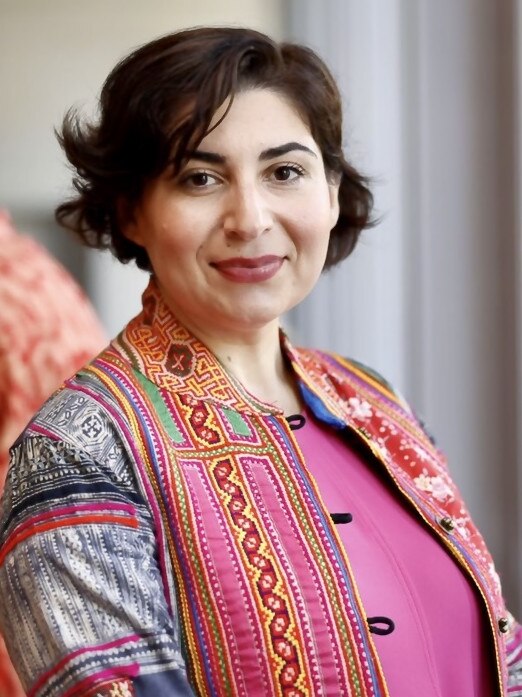
I am honoured to have helped as their “Terp”, the title given to those who provided translator support to the 20-year Australian mission.
“Mina,” the Lancer had asked, “could you speak with the mother of the group we are rescuing? She needs reassurance, but we cannot promise her anything.”
I call a number with a +93 country code. A young man picks up. Speaking in Dari, he tells me he is a relative accompanying the group being evacuated but he is not travelling with them, he is just there to help them as they are mainly women and children. They are outside Kabul’s international airport.
I thank him for his help and ask to speak with the older mother in the group. “Salam,” I say, introducing myself, and ask her how she’s doing.
“I am so happy to hear your voice,” she says – probably because I’m the first woman she has spoken to who is there to help her. Her fear is palpable. “We have been here for several days. We have small children. We are hungry, thirsty and exhausted. We have been flogged and beaten by the Taliban, they are everywhere, they will kill us. Please help us.” She is exhausted. Despair echoes in her voice.
I immediately understand why I’ve been asked to call her. She is on the brink of giving up hope, turning around and going back home to face imminent death. We cannot let that happen because extricating the family from their house is not an option. They are so close; I just need to reassure them that it’s not long now, even though I have no idea how long it will be. I tell her it won’t be long now, that they are almost there and will be getting through the gate soon. I tell her I look forward to meeting her over a cup of chai when she is in Australia. Her voice tells me she has lost hope.
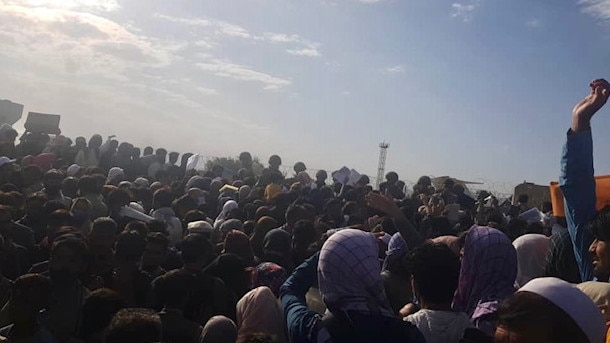
I ask her how many days they’ve been at the airport. She says: “It’s been a week, five days and five nights. We are living in dusty, squalid conditions. We have no money left.”
I ask her to focus on playing with the kids, to pray, meditate, and not to let the Taliban break her resolve. I swear at the Taliban. I immediately hear a change in her voice. Someone has the courage to swear at the barbarians her family is trying to escape. She thanks me and says a prayer for me, then hands the phone to their helper.
I ask him to send me a location pin of where they are. They’re at the Baron gate, at the Baron Hotel. I forward this to the team. “They’re in the wrong place, they need to go to Abbey or canal gate,” they reply.
I call an Australian number for further advice. “The Baron gate is being used by British forces; we can’t access that gate. They won’t let us use it,” I am told by a young Australian DFAT employee. “They have to get to the canal gate but be careful not to fall into the canal.”
I call the team, “Is there seriously no way we can get them through the Baron gate?” I ask.
“No, we have to get them to go to the canal gate.”
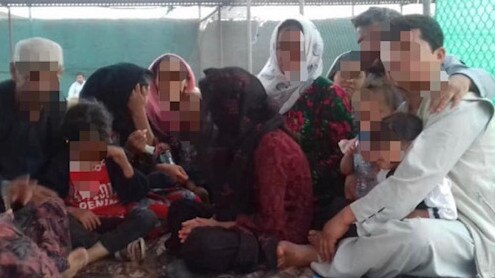
I call the family back and explain that they have to get themselves to the canal gate. All I get from the other end is terrified voices and children crying. They explain to me that they cannot go back to the canal gate because that’s where they were beaten very badly. A terrified little girl gets on the phone, bawling. She begs me: “Please don’t make me go to the other gate. They will beat me up again. I don’t want to be beaten. I’m scared.”
As a mother, my heart breaks, but I remain strong. I cannot afford to break because if I do they will give up all hope. I console her and remind her that she is so much stronger than them. That they are cowards. That she will be OK.
It is to no avail. She continues to cry and the older woman takes the phone. “She’s terrified,” she says. “I don’t know how I’ll get her and the other children to the canal gate. There are Taliban everywhere.”
I reiterate: “This is the British gate; they won’t let Australians use it. You have to get to the canal gate.” She tells me I am sending them to their death. The conversation ends.
I ask the team whether there is any possibility of escorting the family to the right gate. The Lancers on the ground are on it. I send them the family’s location. They have several other families they are escorting, so it will be a wait.
I call the family back and deliver the good news. I ask them to wait where they are and tell them Lancers will be there to escort them to the right gate. They are elated.
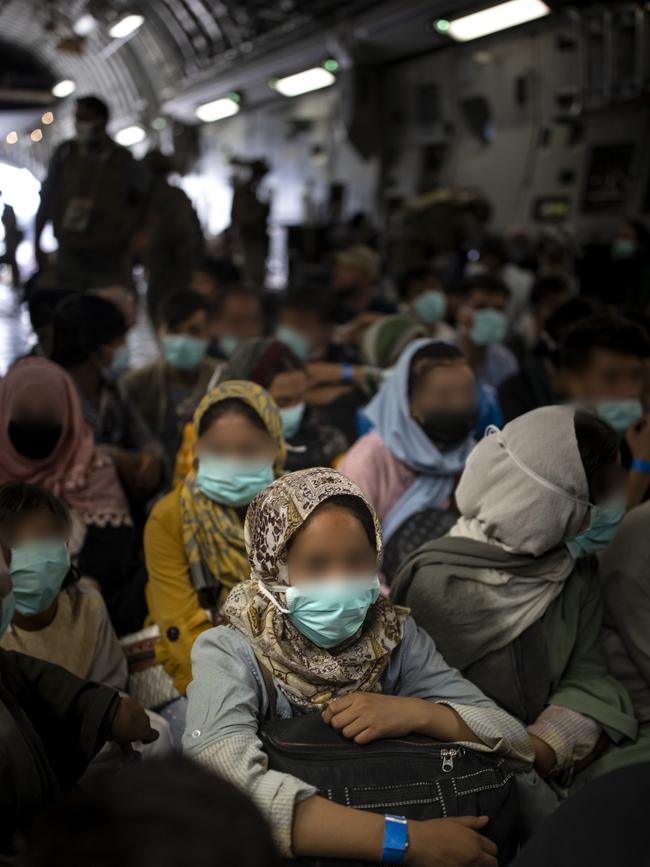
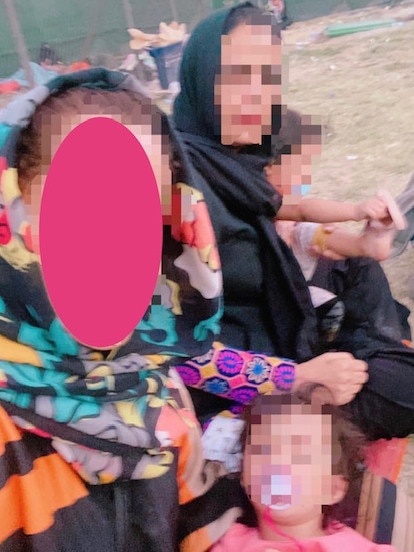
The Lancers also are helping another family, a former female member of parliament in Afghanistan, her daughter and her three granddaughters including two-year-old twin girls. After they have been extricated from their home, contact is lost with the Lancer. I later find he was recognised by the Taliban, ripped from the car and beaten. Hours later, after self-suturing his wounds, he located the MP’s family again and escorted them to the canal gate before leaving for another extrication.
The next 48 hours are touch and go. There is a sick child in need of urgent medical attention. Sitting in the hot sun among the dust and dirt is no easy feat.
The cadet’s family is forced to flee their location when members of the Taliban appear there. Even more petrified, they now are seeking refuge outside a local school. Three young former Afghan soldiers who hope to receive Australian visas, and whom the Lancers also are helping, are playing hide and seek with Taliban members around the airport.
As night falls in Kabul, the Afghan parliamentarian’s family is forced to return home and prepare for a second attempt early the next morning. The young Afghan soldiers also return home without Australian visas, hoping these will arrive tomorrow, and the cadet’s family spends yet another night on the streets in the human quagmire around the airport.
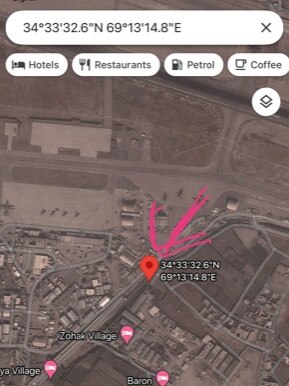
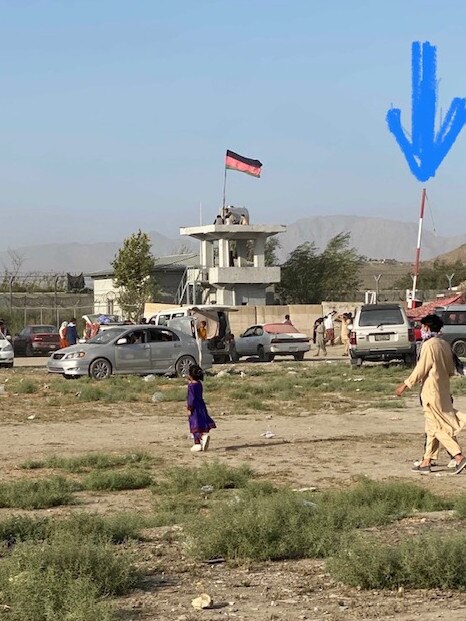
The next day is mostly successful. It involves many phone calls and conversations. More maps and pin locations. Loss of communications and more Taliban beatings. Unique items of clothing are used to locate the families in the crowd: a child’s colourful blanket; a maroon jacket; colourful umbrellas. “Anything that can be disposed of easily if need be,” I am advised by the Lancers. The cadet’s family finally makes it safely across the gate.
The relative who has been helping them sends me photos of the family together with a couple of the Lancers on the other side. The Afghan parliamentarian and her family send me a message that reduces me to tears. “When we arrived at the gate at about 2am, around 10 to 15 Australian soldiers created a barricade around the vehicle and escorted us off with so much dignity and respect. We couldn’t believe just how helpful and compassionate they were. They processed our paperwork and drove us to a camp area at the airfield where we are waiting for the plane to arrive.”
Both families are now safely in the United Arab Emirates.
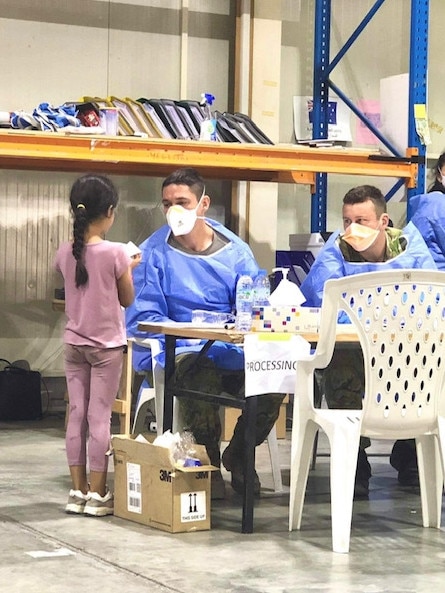
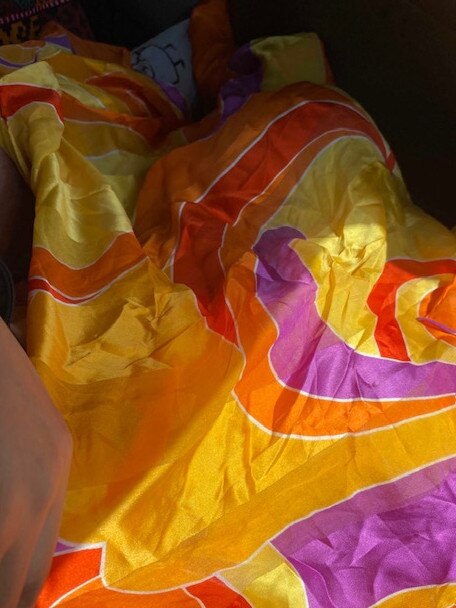
The Afghan soldiers are still in Afghanistan. I contacted them after receiving a message from DFAT to warn them not to go to the airport. I have since lost contact and am desperately trying to find them.
It is my understanding that none of the Lancers are on the ground in Afghanistan any longer, having successfully made it out into a neighbouring country. They are not able to elaborate on plans to help the many at risk individuals and their families remaining in Afghanistan — including the young soldiers and the relative of the RMC cadet who helped get the family to safety with no guarantee of safety for himself — except to say the Australian government is working on next steps.
A brain drain of the best and brightest took place in Afghanistan over the past weeks. They have demonstrated character and courage we prize in Australia. Many of the women rescued are highly skilled individuals and we have now started helping them integrate into Australian society as contributors to their local communities.
While it is reality that we cannot save everyone, it is imperative that we don’t forget about those who remain. There will be no peace in Afghanistan with the Taliban at the helm. Further, this will embolden, terrorist activity around the world.
In the months ahead we can analyse the missteps that got us here. For a moment, we should pause and recognise the heroics of the Aussies on the ground and their Afghan mates who have displayed initiative and courage of the highest calibre.

